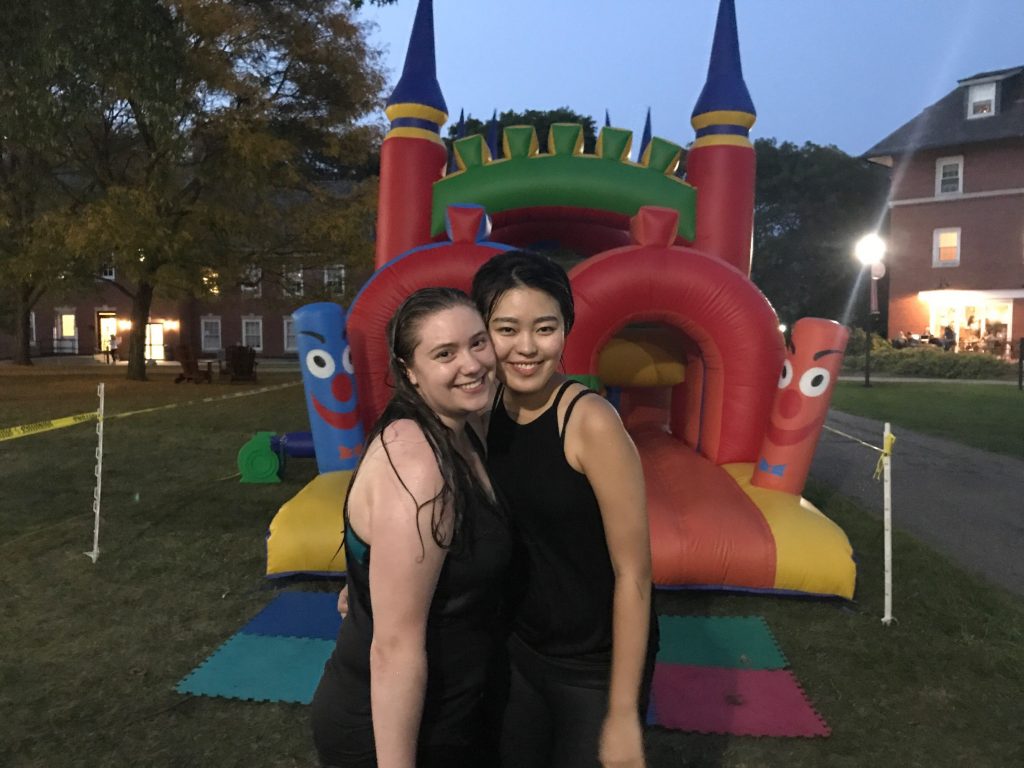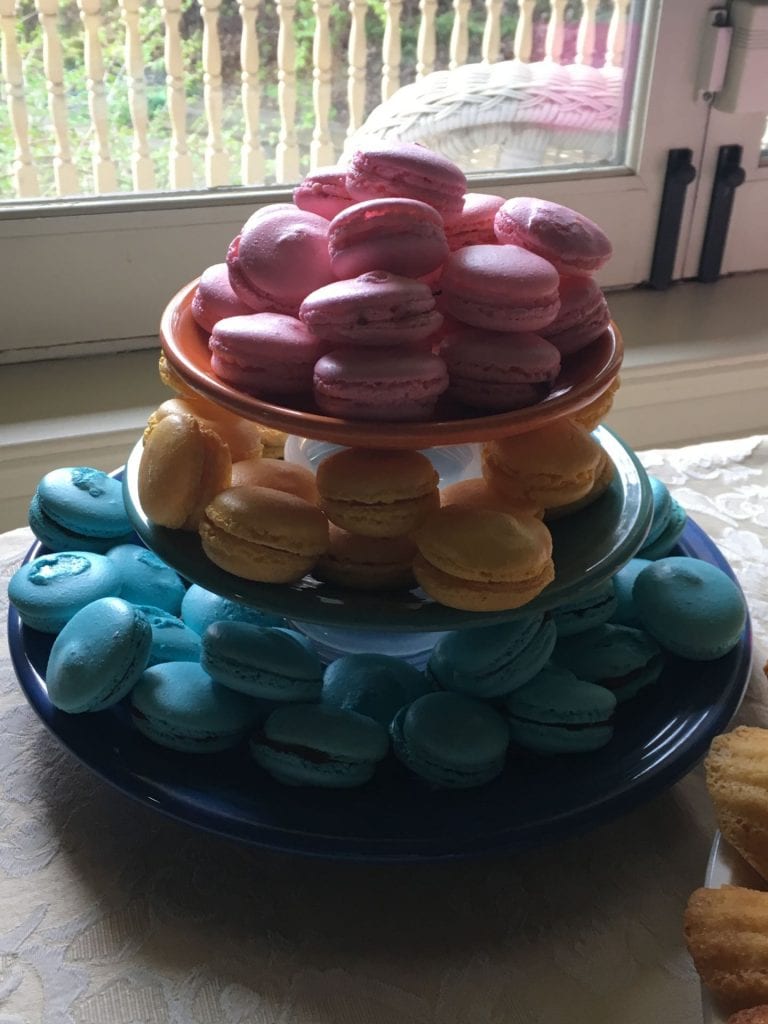Linh Phung, Director of English Language and Pathways Programs
Martina Wells, Coordinator of Modern Languages Program
One core mission of Chatham University is to promote global thinking among its students. Fulfilling the mission requires the work of all departments, offices, and stakeholders from the University. Over the years, the Office of International Affairs, the English Language Program, and the Modern Languages Program have forged close partnerships, resulting in multiple programs and events for linguistic and cultural exchanges as well as the celebration of languages. Viewing multilingualism and multiculturalism as an asset, we have been capitalizing on diverse languages cultures of our international and domestic students in such initiatives as the Conversation Partner Program, International Karaoke Nights, and International Dessert Nights. As a result, many language learning opportunities have been created, friendships formed, compelling stories told, and insights gained.
Conversation Partner Program

The Conversation Partner Program pairs or groups students of different linguistic backgrounds. After the grouping, students set up their own conversations and outings throughout the semester. Over the years, the program has grouped 26-79 students from up to 10 countries together. Students have opportunities to use English, Chinese, Arabic, Japanese, and so on in these conversations. While the demand for Spanish, French, and German often exceeds the presence of native speakers of those languages, success has been specially noted in interactions among students from Japan and students of Japanese thanks in part to the presence of about 20 students from Japan at Chatham every year.
Despite some challenges of running the program, the rewards to students make it all worth it. In survey responses (usually 30% of the applicants) after each semester, students have described their partnerships as “a lot of fun,” “awesome,” and “fantastic.” One said, “it’s a great way to interact with international students and to create a stronger sense of community on campus.” Students reported doing things together, including going to restaurants, inviting their partners to spend time with their family over holidays, and exploring Pittsburgh together. Many have formed close friendships that outlast the study period of international students at Chatham. From a language learning perspective, students have more opportunities to use English and their target language, which undoubtedly contribute to their language development.
International Karaoke Night

This fun event is held once per semester in the evening, usually in the Carriage House. All the students from the language classes (Arabic, Chinese, French, German, Japanese, and Spanish) participate. International students also join in. International Karaoke Night is a venue for showcasing languages through music and performance. Students appreciate the opportunity to sing in their target language and have an audience to cheer them on. Not only does this make an entertaining and community-building night, but importantly, by making direct comparisons, students gain insights into other cultures and languages. As one student put it: “taking a universal concept such as Karaoke, but hearing it in a multiplicity of languages allowed me the opportunity to glimpse into other cultures in an enjoyable manner.”
International Dessert Night / Holidays Around the World Dinner

At the end of each semester, Modern Languages Program (MLP), together with the Office of International Affairs and the English Language Program (ELP), hosts the “Holidays-Around-the-World Dinner” (December) and the “International Dessert Night” (April). The gathering is held on campus in a comfortable living-room setting. Instructors prepare a dish that represents their target culture, supplemented by food that is catered. The evening starts out with games to connect students with each other and engage them in an interactive challenge to find out about various holiday traditions. Winners are awarded small prizes. Again, the goal is to get students to use their target language with each other and to apply it in a new context. Students love tasting new dishes and compare different traditions associated with the foods. Having the international students there gives a very authentic dimension to the evening and enhances the experience for our MLP students
Successful Interdepartmental Partnership
The collaboration has been a happy and successful one, and factors that contribute to this successful partnership include the overlapping goals among the ELP, MLP, and OIA. In addition, the leaders of these departments/ programs take ownership of and responsibility for different initiatives and events. The responsible person is proactive in distributing information about their program in different formats: emails, flyers, social media, and face-to-face communication with their faculty and students. Incorporating certain events into a class (such as the Lab course attached to each three-credit language course from MLP) and making announcements in the classroom is one of the most effective ways to increase student participation. Apart from emails, the organizers occasionally stop by one another’s office for conversations and discussions. This helps to not only effectively plan for the programs, but also strengthen the commitment to working together. The reward is seeing various languages and cultures come together and become alive through authentic conversations, exchanges, and celebrations.
